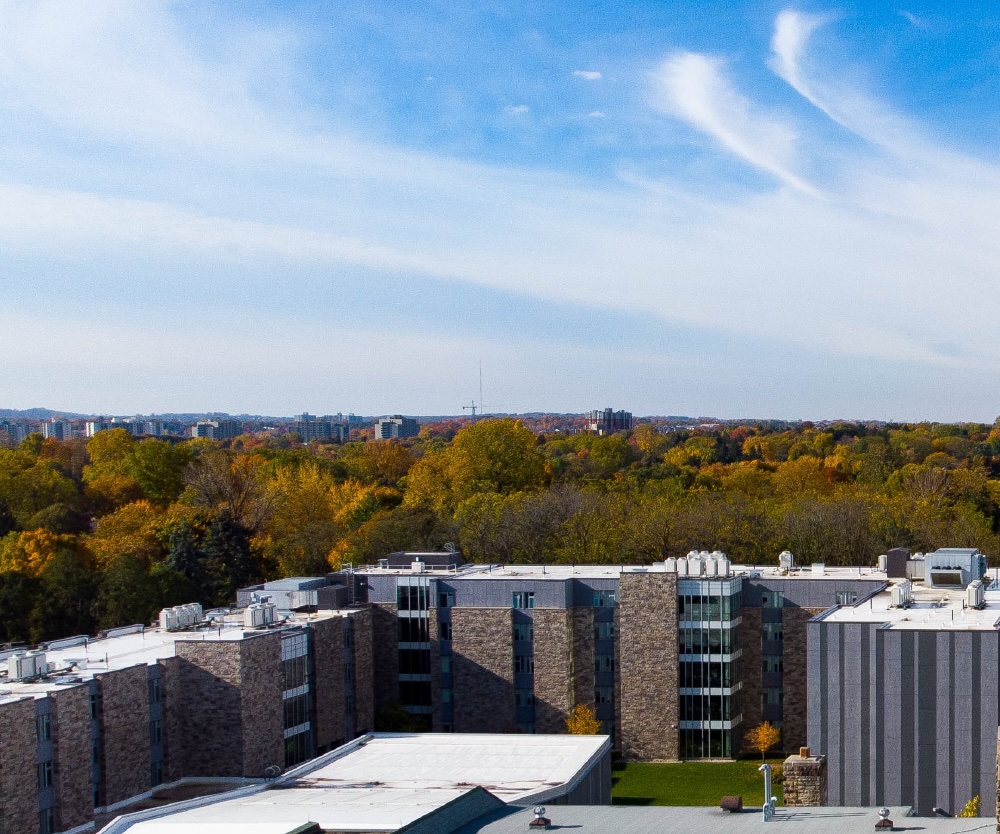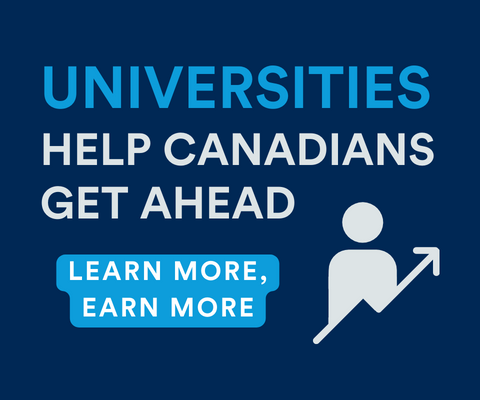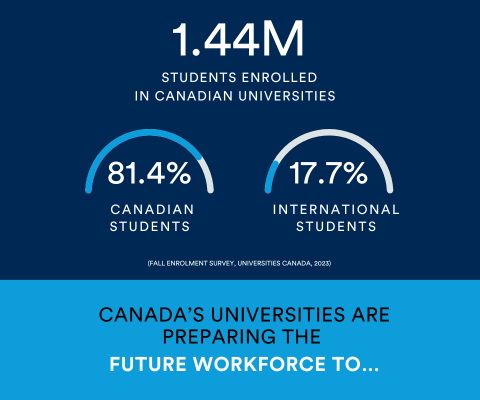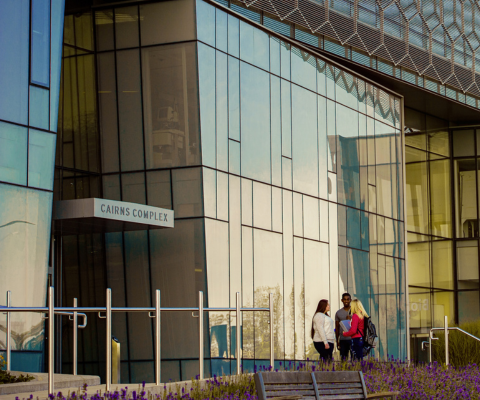Roadmap to net-zero success: quick facts
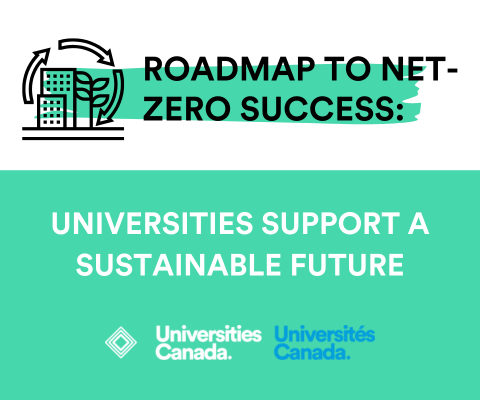
Anything less than an “A” grade when it comes to sustainability education could mean Canada fails to meet its net-zero targets.
Clean-energy jobs are growing fast, yet were lacking the skilled labour to fill them. Universities already offer many sustainability-focused degrees and programs, but we also need greater public investment in research and business participation in upskilling to meet this challenge head on.
See the accessible version of this publication below:
Clean-energy jobs are growing
Clean-energy jobs are growing:
- at an annual rate of +3.4% (2020-2030)
- nearly four times faster than the Canadian average
Source: Canada’s clean energy sector set to accelerate amid fossil fuel slowdown, Clean Energy Canada, 2019.
Global skills gap for the net zero economy
Only one in eight workers worldwide possess the skills needed for a net zero economy.
Source: Global Green Skills Report, LinkedIn, 2023.
Universities offer sustainability education
328 dedicated sustainability and climate-focused programs of study are offered at 51 universities across Canada.
There are thousands of sustainability and climate-focused courses offered across all faculties.
Source: Universities Canada survey of members on climate strategies, 2023.
Key success factors to reach net zero
- Public investment in research
- Hands-on learning through co-ops, mentorship and living labs
- Collaboration among academia, government and industry on training
- Business involvement in upskilling
Benefits of investing in environmental sustainability
- Talent attraction
- Resilient workforce
- Enhanced Canadian economy
Tagged: Skills and talent, Sustainability and climate change
